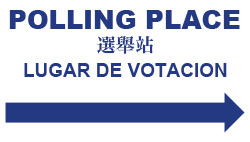 Election season is upon us, and an interesting opinion came out last week. In Democratic Nat’l Comm. v. Republican Nat’l Comm., the Third Circuit upheld a consent decree between the parties that restricted voter fraud enforcement actions.
Election season is upon us, and an interesting opinion came out last week. In Democratic Nat’l Comm. v. Republican Nat’l Comm., the Third Circuit upheld a consent decree between the parties that restricted voter fraud enforcement actions.
According to the facts in the case, the Republican National Committee (RNC) was sued for voter intimidation in 1981:
The RNC allegedly created a voter challenge list by mailing sample ballots to individuals in precincts with a high percentage of racial or ethnic minority registered voters and, then, including individuals whose postcards were returned as undeliverable on a list of voters to challenge at the polls. The RNC also allegedly enlisted the help of off-duty sheriffs and police officers to intimidate voters by standing at polling places in minority precincts during voting with ‘National Ballot Security Task Force’ armbands. Some of the officers allegedly wore firearms in a visible manner.
The RNC entered into a consent decree to settle the matter, agreeing to comply with federal and state voting laws, get court consent before engaging in ballot security activities, and to refrain from intimidating practices like interrogating prospective voters at the polls and removing lawful campaign materials from polling sites. The Democratic National Committee (DNC) sued for violation of the order in 1982, and became part of the consent decree.
In 2008, the RNC sought to vacate the decree, arguing that circumstances had changed since the enactment of National Voter Registation Act of 1993 [NVRA] (42 USC §1973 et seq), the Bipartisan Campaign Reform Act of 2002 [BCRA] (2 USC §431 et seq) and the Help America Vote Act of 2002 [HAVA] (42 USC §15301 et seq), and that the consent decree was no longer needed. The District Court upheld the decree with some modifications, and the Third Circuit found that the Court did not abuse its discretion in doing so.
Among the Court’s findings:
(1) The First Amendment does not cover an agreement between two private parties in this situation, regardless of Court involvement in supervising the agreement;
(2) Just because African Americans hold several prominent government roles (President, Attorney General, and Chairman of the RNC) does not mean that minorities are no longer subjected to voter intimidation;
(3) An increase in minority voters since 1982 does not demonstrate that minority votes are not being suppressed;
(4) The consent decree is not rendered moot by the NVRA, nor does the NVRA authorize conduct that is prohibited by the decree. The NVRA authorizes election officials to use mailings to update voter registration. It does not authorize private parties to do this;
(5) The provisional ballot portion of HAVA does not render prospective application of the decree inequitable, and its provision for complaint procedures do not render the decree moot or make legal what is prohibited in the decree;
(6) It is not in the public interest to vacate the decree; and
(7) The decree is not “unworkable” because the RNC must use “hard money” to defend itself against voter intimidation lawsuits;
The Third Circuit seemed skeptical of the RNC’s motives, holding that “If the RNC does not hope to engage in conduct that would violate the Decree, it is puzzling that the RNC is pursuing vacatur so vigorously notwithstanding the District Court’s significant modifications to the Decree.” In other words, if you were planning to follow the rules anyway, why seek to change them?
